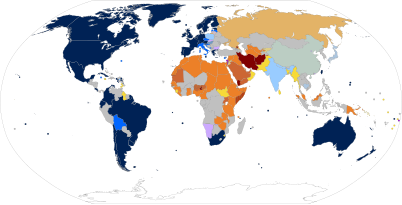Difference between revisions of "Marriage equality"
From LGBT Archive
Ross Burgess (Talk | contribs) |
Ross Burgess (Talk | contribs) (→=Civil partnerships) |
||
| Line 27: | Line 27: | ||
</table>]]'''Marriage equality''' refers to the extension to same-sex couples of the ability to get married in the same way as opposite-sex couples. Full same-sex marriage has now been legally recognised in a number of coutnries around the world, and in some stattes of the USA. In the UK, demand for same-sex marriage was initially met by the introduciton of [[civil partnership]]s, which provide almost all of the rights and obligations of marriage. However some ifferences remain, which has led for the campaign to extend marriage as such to same-sex couples. | </table>]]'''Marriage equality''' refers to the extension to same-sex couples of the ability to get married in the same way as opposite-sex couples. Full same-sex marriage has now been legally recognised in a number of coutnries around the world, and in some stattes of the USA. In the UK, demand for same-sex marriage was initially met by the introduciton of [[civil partnership]]s, which provide almost all of the rights and obligations of marriage. However some ifferences remain, which has led for the campaign to extend marriage as such to same-sex couples. | ||
| − | + | ==Civil partnerships== | |
| + | |||
| + | [[Civil partnership]]s were introduced by the Labour Government under the [[Civil Partnership Act 2004]]. The first civil partnerships were formed in December 2005. | ||
==The demand for marriage equality== | ==The demand for marriage equality== | ||
Revision as of 07:28, 23 May 2012

Rings indicate areas where local judges have granted marriage or imposed the death penalty in a country where that is not otherwise the law. 1May include recent laws or court decisions which have created legal recognition of same-sex relationships, but which have not entered into effect yet |
Civil partnerships
Civil partnerships were introduced by the Labour Government under the Civil Partnership Act 2004. The first civil partnerships were formed in December 2005.